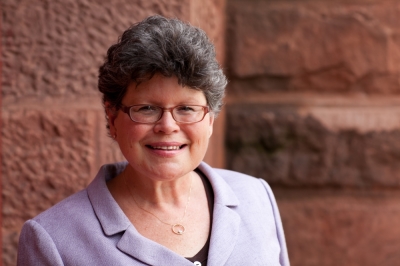Sudanese Bishops to Congress: How You Can Help Those Who Have Suffered

In a series of videos, the first of which accompanies this blog post, we are sending a message to the co-chairs of the U.S. House of Representatives Congressional Caucus on Sudan and South Sudan: U.S. Representatives Michael McCaul (R-Texas), Barbara Lee (D-Calif.), Michael Capuano (D-Mass.), and Jeff Fortenberry (R-Neb.) from four bishops of the Episcopal Church of South Sudan and Sudan.
Sudanese bishop Rt. Reverend Andudu Adam Elnail (Kadugli and Nuba Mountains), and South Sudanese bishops, Rt. Reverend Joseph Garang Atem (Renk), Rt. Reverend Moses Deng Bol (Wau), and Rt. Reverend Samuel Peni (Nzara) were special guests at the annual conference of the American Friends of the Episcopal Church of Sudan and South Sudan (AFRECS) late last month. I took advantage of the opportunity to ask if they would help appeal to the Sudan Caucus to sponsor a letter from members of Congress to Attorney General Loretta Lynch.
A full explanation of why I asked the bishops to appeal to the Sudan Caucus can be found on the website Sudan Community Compensation, along with actions that you can take to join Bishops Andudu, Atem, Bol, and Peni and to help the suffering people of Sudan and South Sudan to receive justice and compensation for the atrocities committed against them by the Sudanese government.
But here is some brief background:
In May of this year, BNP Paribas (BNPP), a global financial institution headquartered in Paris, was sentenced for conspiring to violate the International Emergency Economic Powers Act (IEEPA) and the Trading with the Enemy Act (TWEA), by "processing billions of dollars of transactions through the U.S. financial system on behalf of Sudanese, Iranian, and Cuban entities, subject to U.S. economic sanctions." BNPP paid a fine of $8.9 billion for these sanction violations, which were mostly in regards to Sudan. A few months later, the U.S. Department of Justice announced that it was "exploring ways to use these forfeited funds to compensate individuals harmed by the sanctioned regimes of Sudan, Cuba, and Iran" and that $3.8 billion of the total would be available "for potential compensation to people who were harmed by BNPP's sanctions violations."
Two IRD friends and great Sudan activists, Eric Reeves and Eric Cohen, drafted a proposal for a "Sudanese Community Compensation Program" to the Department of Justice. They ask that "Sudan compensation money be placed into trust for the Sudanese communities who were harmed as a result of BNPP's illegal behavior in the form of a 'Sudan Community Compensation Program' and propose that the primary focus of the compensation program should address the most critical emergency humanitarian aid shortfalls for all existing Sudanese refugees and IDPs, totaling well over 4 million people."
Here is just one example given in the Sudan Community Compensation Program Proposal of how BNPP's terrorism sanction violations harmed the people of Sudan and South Sudan.
BNPP also helped Sudan finance its oil industry, which provided Sudan's primary export and source of government revenue. In addition, the letters of credit and foreign exchange substantially and inevitably helped as the Government of Sudan ramped up its military expenditures during this period. Sudan's large military purchases during this period included such deadly equipment as MiG-29's and Mi-24 helicopter gunships, which the Government of Sudan used in its various wars against its own people in the period 2002 through 2008, as well as subsequently. These weapons have historically had long use in Sudan's military, and the Government of Sudan continues to employ these weapons in its attacks against its people. Therefore, it is appropriate and reasonable to consider the people harmed by BNPP's actions to include the period 2002 through the present.
The proposal was presented to the Justice Department by Reeves and Cohen on September 2, 2015. Since then, numbers of Sudanese diaspora leaders, human rights organizations, genocide scholars, and Sudan advocates have signed in support of the proposal. In addition, on September 1, nine members of Congress wrote to Attorney General Lynch. Unfortunately, the only co-chair of the Sudan Caucus who was a signatory was U.S. Rep. Capuano. He, along with the other eight members who signed should be thanked for their effort.
On October 21 the members of Congress received a response from Assistant Attorney General Peter Kadzik. His letter was — for the most part — a reiteration of information already known. So now we are once again appealing to the co-chairs of the Sudan Caucus to write to Lynch, pressing for more clarification on how the Department of Justice intends to distribute funds. This will give an opportunity to the other three co-chairs who did not sign the first letter to do something great for the people of Sudan and South Sudan who were harmed by BNPP.
Please listen now to the plea from the Rt. Reverend Moses Deng Bol, Bishop of Wau:
This article was originally posted here






















